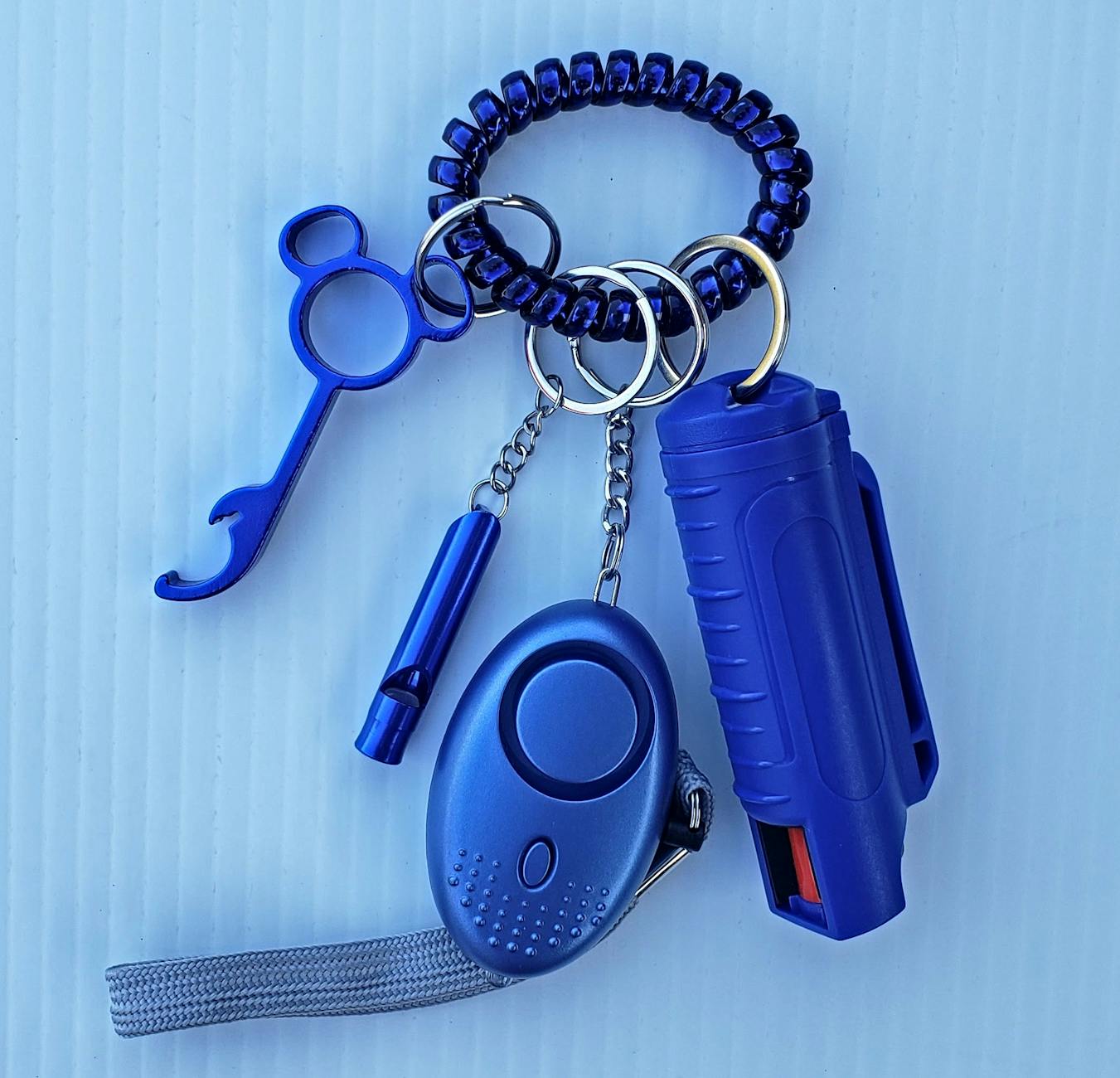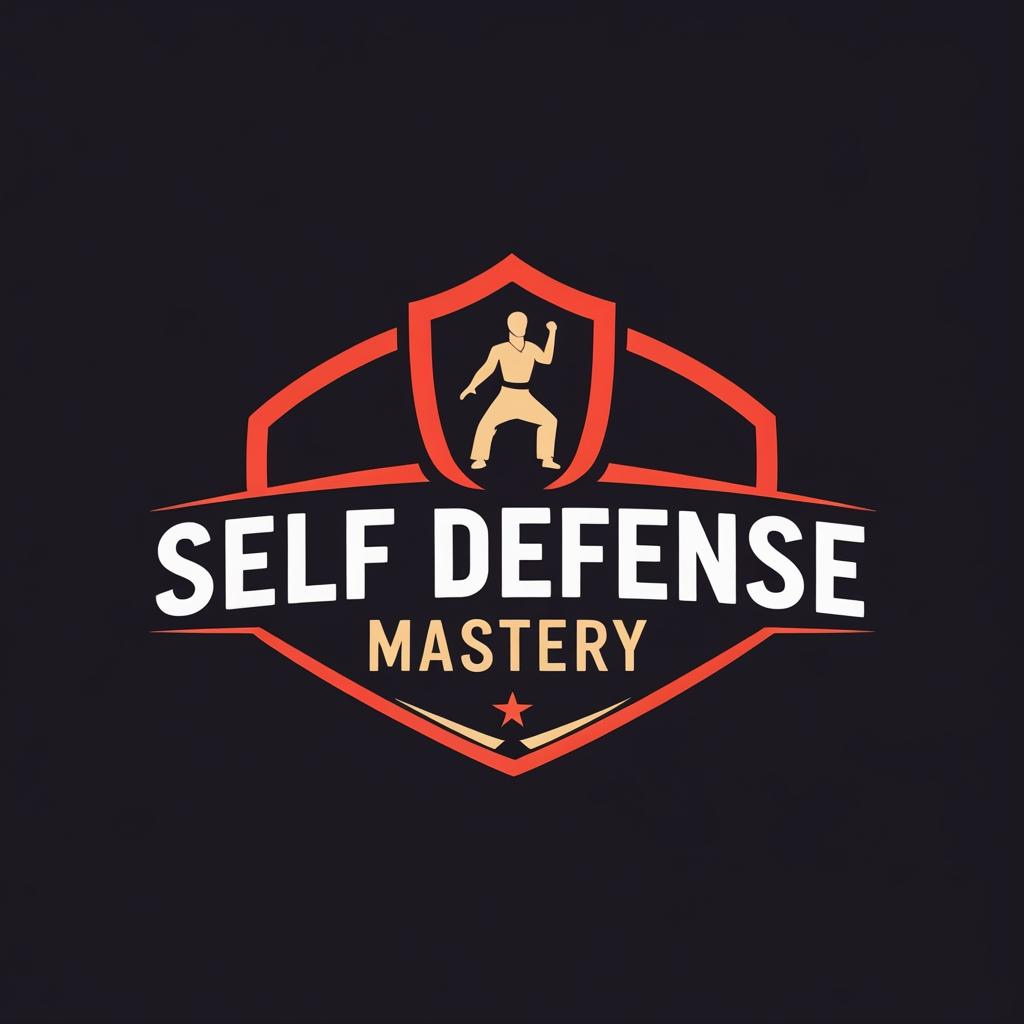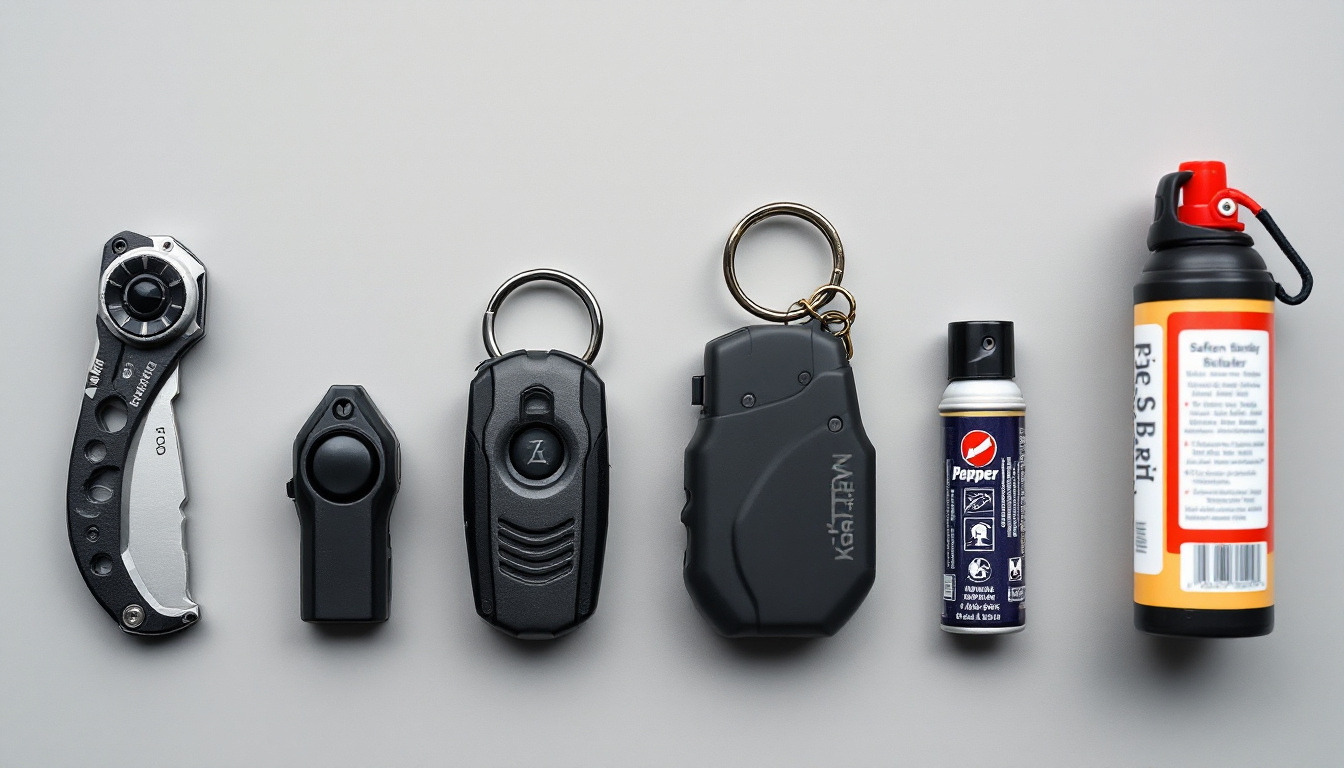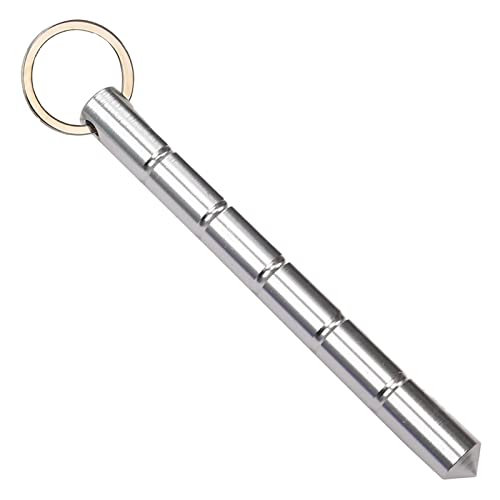Self-Defense Keychain Laws: What You Need to Know Before Carrying
Self-defense keychains come in many shapes and sizes, from pepper spray and kubotans to alarms and cat ears. Their appeal is clear—they’re small, easy to use, and offer quick defense in dangerous situations. As personal safety gains more attention, these keychains are showing up everywhere, from college campuses to daily commutes. But the legal rules for carrying or using them are not simple. Before you buy or carry one, it’s crucial to understand self-defense keychain laws so you don’t end up on the wrong side of the law. This article includes the most important legal facts and practical tips to choose and use your keychain safely and legally.
Understanding Self-Defense Keychain Laws in the United States
 Photo by Brittany C.
Photo by Brittany C.
Self-defense keychain laws in the U.S. are a patchwork. There’s no single rule that covers every state or city. The main factors that shape legality include the design of the item, your intended use, and where you’re located.
For example, a basic whistle or alarm keychain is legal almost everywhere because it’s non-lethal and only calls for help. However, a keychain shaped like brass knuckles, a tactical knife, or a sharp “cat ear” may be banned or tightly regulated in many states. Some states treat these as concealed weapons or even classify them with brass knuckles, which are illegal in over 20 states.
In more lenient states, many self-defense keychains are allowed as long as they’re not used to harm others without cause. But in stricter states, laws may ban anything that could be seen as a weapon, even if it’s only meant for self-defense. It’s up to each person to check local laws before carrying.
Federal Guidelines and Common Restrictions
There is no federal law that directly addresses self-defense keychains. Instead, federal rules focus on broad definitions, like what counts as a “dangerous weapon,” or cover weapons in sensitive places such as airports or federal buildings.
Federal law does ban certain items, such as switchblade knives, in interstate commerce, and it regulates chemical sprays like pepper spray on airplanes. The Transportation Security Administration (TSA) prohibits carrying pepper spray, stun guns, or sharp keychains in your carry-on luggage.
Whether a keychain is a “dangerous weapon” depends on how it looks and what it can do. If a keychain can cause serious harm or is disguised as an everyday object but is meant to injure, it may fall under weapon statutes. For example, a kubotan is usually seen as non-lethal, but it could be classified as a weapon if it’s sharpened or reinforced.
State-by-State Variations and Key Considerations
States set their own rules, and the differences can be dramatic. Some states are clear about what’s allowed. Others have vague laws, leaving much to law enforcement or the courts’ interpretation.
- Lenient states like Texas and Arizona allow most self-defense keychains, including pepper spray, kubotans, and cat ear keychains.
- Strict states like California, New York, and Illinois ban brass knuckles, certain knives, and sometimes even cat-shaped keychains. In some places, carrying a disguised or reinforced keychain could lead to criminal charges.
Age, size, and potency restrictions are also common. For example, pepper spray is legal in all 50 states, but some limit the canister size (like 2.5 ounces in California) or the amount of active ingredient. Some states require buyers to be 18 or older or to buy only from licensed dealers.
Because rules can change quickly, always check state and city websites or talk to local law enforcement before buying or carrying a self-defense keychain.
Consequences for Violating Self-Defense Keychain Laws
Carrying a banned or restricted self-defense keychain can lead to arrest, fines, or even a criminal record. Charges can range from possession of a prohibited weapon to intent to use a weapon unlawfully. This can affect your ability to carry other self-defense tools or even impact job prospects.
The consequences don’t stop at fines or court dates. If you use a keychain weapon in self-defense, the legality of your actions could be questioned. Understanding the difference between justified defense and unlawful force is essential. For more on the legal side of using force in self-defense situations, see Self-Defense and Stand Your Ground Law.
Practical Tips for Staying Within the Law
With so many types of self-defense keychains out there, it’s easy to make a mistake. Here’s how to protect yourself while staying within the law.
Choosing a Legally Compliant Self-Defense Keychain
- Stick to non-lethal designs: Alarms, whistles, and small flashlights are legal almost everywhere.
- Avoid blades and reinforced tools: Folding knives and metal “cat ears” may be illegal in many states.
- Check the size: Some states limit the length of knives or the amount of pepper spray.
- Watch for disguised weapons: Keychains that look like everyday objects but function as weapons can bring extra legal risk.
Don’t modify or alter your keychain to increase its striking power or hide its purpose. This can turn a legal item into an illegal one.
Responsible Carry and Personal Awareness
Always carry your self-defense keychain where it’s easy to access, but not in a way that could be seen as threatening. Avoid bringing it to places where weapons of any kind are banned, like schools, government buildings, or airplanes.
Store your keychain safely at home and keep it away from children. Keep the packaging or a receipt showing its intended use as a safety device when possible.
Remember, self-defense laws often require you to avoid conflict if you can. Using force when it could have been avoided may get you into legal trouble. To better understand these rules, see The Duty to Retreat Explained.
Conclusion
Self-defense keychain laws can be confusing, but ignoring them is risky. Before you buy or carry a self-defense keychain, do your homework. Check the rules for your state and city. Choose a legal, responsible design and know how and when to use it.
Knowledge is your best defense. For more practical tips and in-depth guides on staying safe and legal, explore the resources at Self Defense Mastery. Stay safe, stay informed, and protect yourself the smart way.






![What To Say And Not Say To Police After A Self-Defense Incident [2025 Guide] What to Say and Not Say to Police After a Self-Defense Incident](https://selfdefensemastery.com/wp-content/uploads/2025/04/police-scene-dusk-crime-tape-guide.jpg)
